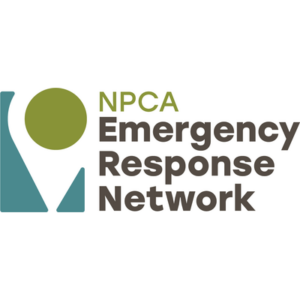 Welcomed by Dr. Anthony Fauci and Dr. Peter Kilmarx from the National Institutes of Health, the first cohort of NPCA contact tracers is training to begin work in King County, Washington.
Welcomed by Dr. Anthony Fauci and Dr. Peter Kilmarx from the National Institutes of Health, the first cohort of NPCA contact tracers is training to begin work in King County, Washington.
By Dan Baker
Renowned infectious disease expert Dr. Anthony Fauci offered words of encouragement and inspiration as the first cohort of the National Peace Corps Association Emergency Response Network began training as contact tracers on October 28. These inaugural members of the NPCA Emergency Response Network will work as contact tracers with the Department of Health of Seattle and King County, Washington.
“I am a longstanding admirer of your passion and dedication to a purpose greater than yourselves,” Dr. Fauci told the Returned Peace Corps Volunteers. “I am profoundly grateful for your resilience and your adaptability that has enabled you to transfer your skills and commitment to this urgent need in our country to get the COVID-19 pandemic under control.”
“I am profoundly grateful for your resilience and your adaptability that has enabled you to transfer your skills and commitment to this urgent need in our country to get the COVID-19 pandemic under control.”
— Dr. Anthony Fauci, NIH
Dr. Fauci serves has served as the director of the National Institute of Allergy and Infectious Diseases with the National Institutes of Health since 1984. As he noted in his remarks, a number of returned Volunteers in this inaugural cohort of the Emergency Response Network were evacuated from the countries where they were serving in March as COVID-19 swept across the globe.
Watch Dr. Fauci’s full remarks here:
The idea of putting evacuated Peace Corps Volunteers to work as contact tracers to help during the pandemic is an idea NPCA has worked toward since March. One of the advocates for that has been Dr. Peter Kilmarx, who joined the event by Zoom. He serves as deputy director of the Fogarty International Center at the National Institutes of Health. With decades of experience working with the Centers for Disease Control and Prevention, Dr. Kilmarx served as a Peace Corps Volunteer in the 1980s in Democratic Republic of Congo, then known as Zaire.
“Today is an exciting milestone in the National Peace Corps Association’s efforts to engage RPCVs in the COVID-19 response,” Dr. Kilmarx told the returned Volunteers, “and an exciting day for those of you joining the historic global effort to control this pandemic … Done right, contact tracing is very effective. In New Zealand, contact tracers brought the average time from onset of illness to isolation from 7·2 days in March, to negative 2.7 days in April. That means that on average, cases were isolated 2.7 days before they fell ill, and local transmission in New Zealand dropped to zero.”
“If you ask me, ‘What makes a great contact tracer?’ I would say, ‘A Returned Peace Corps Volunteer,’ or anyone with that kind of resilience, cultural competence, and a spirit of service to the community.”
— Dr. Peter Kilmarx, NIH
Dr. Kilmarx also traced the efforts going back months to involve more returned Volunteers in contact tracing. ”If you ask me, ‘What makes a great contact tracer?’ I would say, ‘A Returned Peace Corps Volunteer,’ or anyone with that kind of resilience, cultural competence, and a spirit of service to the community.”
Watch Dr. Kilmarx’s full remarks here:
The NPCA Emergency Response Network’s initial efforts in Seattle are being coordinated by John Berry, who served as a Peace Corps Volunteer in Niger 1986–89 and has extensive experience in international development program design and management. Forum One, a full-service digital agency with RPCVs on staff, provided NPCA with digital strategy and design for this new program.
King County was the setting of the first significant COVID-19 outbreak in the United States, and the Department of Health has been a leader in the fight against the pandemic, so it is fitting that the Seattle area will be the first focus for NPCA’s response efforts. We continue to discuss similar partnerships with other health departments around the country, and we’re confident that others will see the value of working with RPCVs through this network.
Read more about the NPCA Emergency Response Network and opportunities for partnership here.
Dan Baker is the director of NPCA’s Global Reentry Program. Reach him at (202) 934-1534 or [email protected].